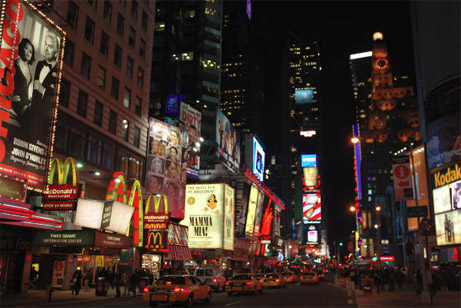"Energy security" is a term that has long bedeviled energy policy debates among politicians, businessmen and academics. What steps should countries take to minimise vulnerabilities to energy supply disruptions"pressing issues to deal with".

The many dimensions of energy security
The call for enhanced "energy security" has often been invoked to support conflicting policy positions. In the US, proponents of subsidies for alternative energy and electric vehicles invoke the mantra of energy security as forcefully as the Senators who support their local coal-fuelled power stations. While both positions claim to reduce America's dependence on energy imports, their approach to climate change issues could not be more opposed.
Indeed, energy security is a term bandied about by players across the policy spectrum, from the Greens whose constant refrain is of the risks of cataclysmic climate change to the many business groups and public or private resource owners with vested interests across the energy value chain. Being so contested by different political and economic constituencies, the term carries its multi-hued meanings to the point of contradiction.
A simpler metric"Index of US Energy Security" compiled by the US Chambers of Commerce's energy policy group. In its own words, the report provides "the first quantifiable measurement of energy security based on 37 individual metrics". The 37 components of data are assembled under four headings--geopolitical, economic, reliability and environment. The first two categories are given 30 percent each, and the latter two 20 percent each. No reasons are given as to why this particular weighting is adopted, and one can surmise only that this is the considered judgment of the report's expert authors.
Most often, these attempts at measurement start with a smorgasbord of data--dependence on energy imports, household and business expenditures on energy use, the intensity of energy inputs in economy activity, price volatility of energy commodities, political stability of energy-exporting regions, and the likes. Through what are essentially ad hoc exercises of judgment, these characteristics are then arbitrarily weighted and ranked to yield a single metric measuring "energy security".
Inevitably, simplistic attempts at measuring energy security come up with dubious results. Two examples suffice to make the point. The US Chamber index applies over 10 percent weight to the crude oil price component alone, with higher oil prices bringing down the score. Yet, there is a world of a difference between high oil prices caused by increasing demand for energy during prosperous times of rising incomes, and high oil prices caused by supply side shocks, like those of the 1970s.
High oil prices on an economic upswing provide signals to encourage exploration and production efforts, spur innovation in conservation and alternative energy technologies, and generally guide markets to more efficient use of scarce resources. High oil prices during an economic downturn are usually the effect of supply side restrictions of one sort or another.
Under the "environment" heading, the US Chamber's index measures variables such as CO2 emissions per capita and per $ GDP, with higher emissions indicating a lower score for energy security. Yet, it is precisely those countries too poor to have a high carbon footprint that face the greatest challenges in providing their citizens with adequate energy at affordable prices, sometimes for such basic needs as cooking and lighting.
Too often an excuse for bad policy
Energy security has been the justification for much bad policy. President Jimmy Carter's "moral equivalent of war" with its xenophobic notion of "energy independence" is just one of the more egregious examples of economic nonsense. The idea that energy security can be improved by ending import dependence on oil and gas from the Middle East is unrealistic and misguided. The crude oil market is now inherently global, where arbitrage among many players establishes international trading patterns and worldwide oil prices adjusted for quality and transport differentials. A policy of simply redirecting oil flows established by the market will almost invariably be inefficient and does nothing to enhance energy security.
It is not clear how state-directed purchases of oil and gas stakes in opaque companies, typically in countries where the rule of law is not well-established, can enhance energy security. "Making oil" via exploration and production investments is not inherently superior to simply buying oil in open markets. It all depends on whether you are better at "making" oil or making other goods and services to sell in order to buy the needed oil or gas. It is well understood, at least since the days of the 18th century classical economist David Ricardo, that countries should specialise in their comparative advantage and use export earnings for required imports.
If we turn to the other end of the energy spectrum, the policy record in promoting "green" energy technologies for energy security is not much better. The widespread dissatisfaction of the public in Germany and Australia against higher electricity tariffs for generous solar subsidies has forced difficult policy retractions. In the US, editorials in even the liberal dailies question the wind and ethanol subsidy "boondoggles" being foisted on households already stressed out by the worst recession since the 1930s.
Perhaps the last words belong to Winston Churchill who, as First Lord of the Admiralty, faced the question of energy security at the turn-of-century zenith of Imperial England, and said in an often-quoted declaration: In no one quality, on no one process, on no one country, on no one route, and on no one field must we be dependent. Safety and certainty in oil lie in variety and variety alone". We merely need to replace the word "oil" with "energy" for those words to be as relevant today.
By : Dr Tilak K. Doshi, Chief Economist, Energy Studies Institute, National University of Singapore